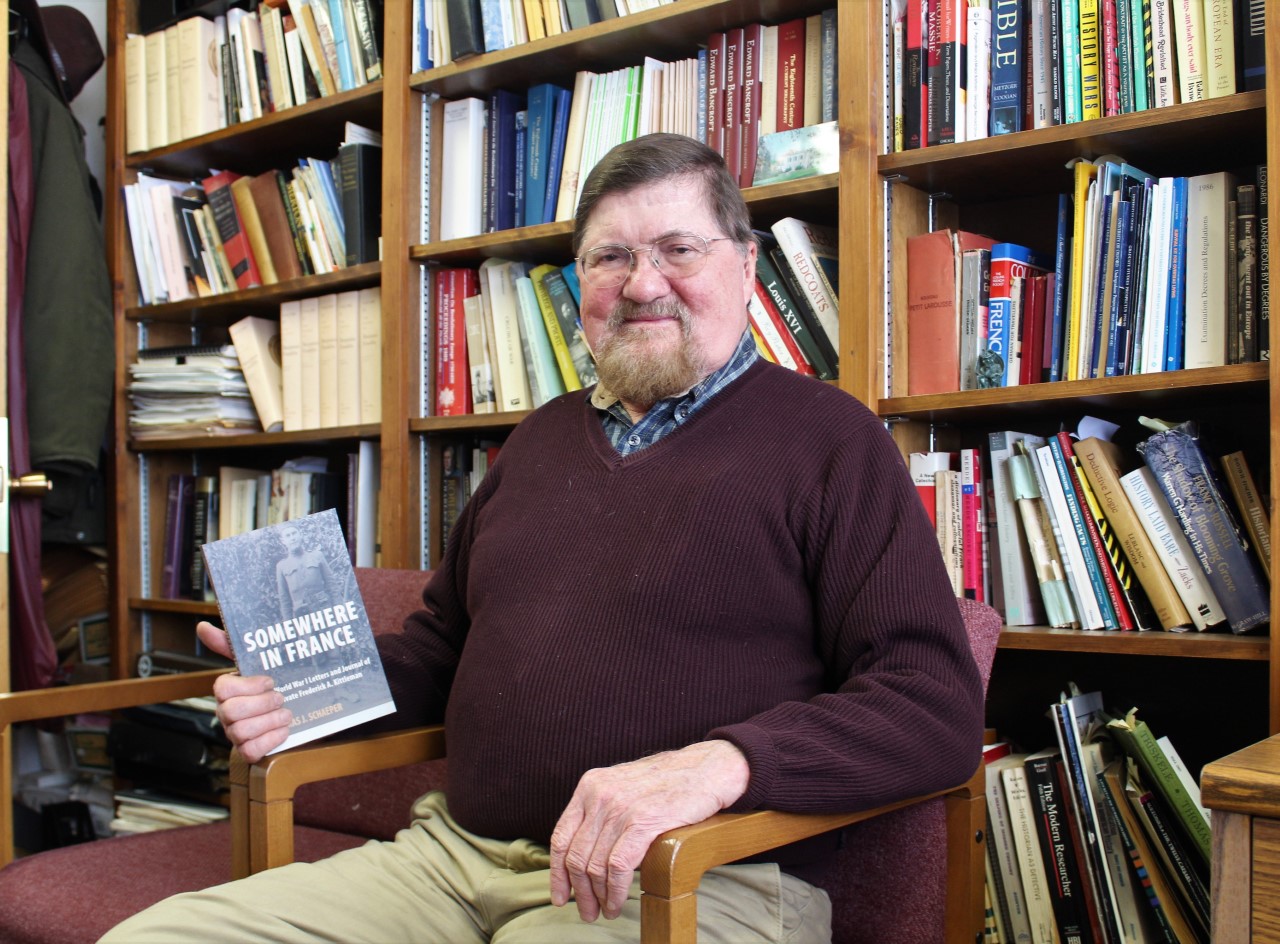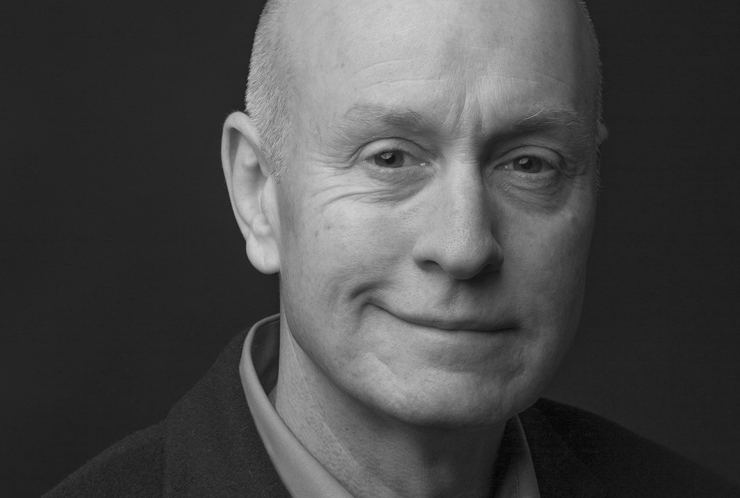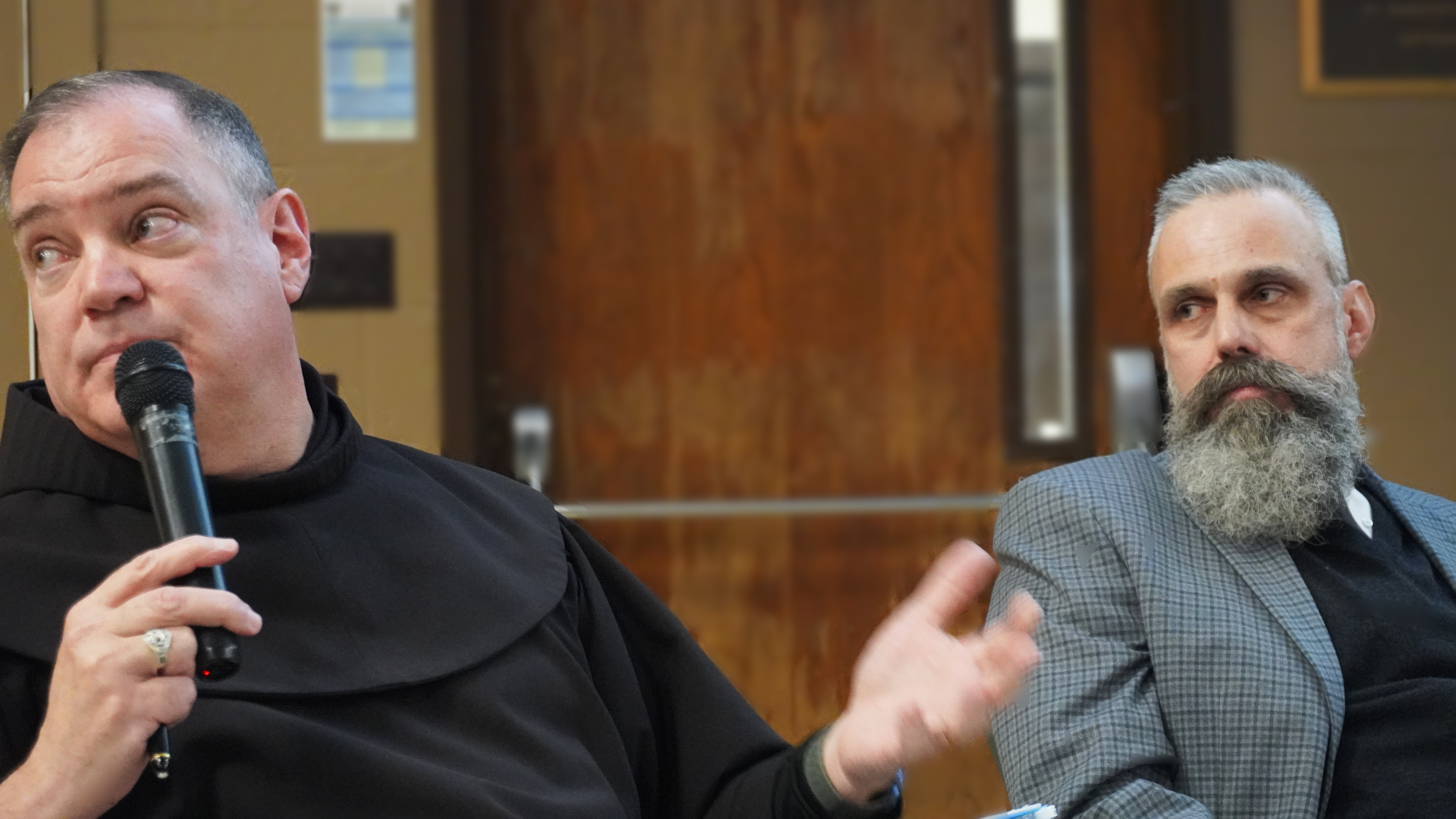By Diana McElfresh
Editor-In-Chief
Dan Barry, ’80, said he thinks St. Bonaventure was “integral” to shaping the path of his career.
“I really do embrace the Franciscan ideal,” said Barry on Monday during a media briefing.
Barry was on campus this week to discuss his recently published book, “The Boys in the Bunkhouse: Servitude and Salvation in the Heartland.” The book was an expansion on an article he published in 2014 for his New York Times column, “This Land.”
The Boys in the Bunkhouse was the assigned All Bonaventure Reads book for the class of 2020 over the summer.
Students, staff and faculty had the opportunity to listen to Barry deliver a talk and answer questions about the research and development of his book, and the influences that have been affected to his career as a writer.
Barry explained that in his beginnings at St. Bonaventure, living on the fourth floor of Devereux Hall, the dorm was populated with “unformed creatures,” known for “minor vandalism.”
He said every morning, after the residents of fourth Dev had wreaked havoc, a janitor named Tony Villani would clean up after the “relatively privileged undergraduates.”
He said he took an interest in Villani and in the story that he had to tell early on, though many of his classmates dismissed Villani as a “gooner.”
In time, he discovered that Villani was in fact the cousin of the Italian film actress, Sophia Loren.
“I am as grateful to Tony as to any college professor I had because he helped me recognize this ‘otherness’ that exists in society, this accepted belief that those with intellectual disability were different, other and deserve to be segregated,” Barry said.
Barry said nearly 40 years after his initial experience with Villani, he happened upon an article in an Iowa newspaper regarding a $240 million lawsuit involving 32 men with intellectual disabilities. All of the men had lived in squalid conditions in Atalissa, Iowa, and worked eviscerating turkeys.
As the article went, the men were paid $65 per month for three decades.
Like he had with a St. Bonaventure janitor all those years ago, Barry said he knew the story belonged to the men. So, he made his way to Iowa and got permission to interview them.
Barry showed his audience clips of interviews with some of the men, all of whom are living in better conditions than they had in Atalissa, and pointed out that some men were even living on their own.
He explained many of the men had suffered physical and emotional trauma. Some were kicked, slapped and subjected to verbal abuse. The work they performed was grueling, and they were paid far less for their efforts than someone without intellectual disabilities would be paid.
He described the work the men did as “flat-out exploitation.”
That’s not to say, however, that the story Barry tells is one solely of horror and mistreatment.
Rather, he said he believes the story he tells is one of compassion, grace and empathy.
“It’s sad, and it’s upsetting and a lesson in the human capacity to exploit one another, to not even see one another,” he said. “It reminds us that good in the world, change for the better, requires perseverance.”
He said he wanted students to understand that the nature of life is much more complicated than the easy black-and-white worldview people tend to gravitate toward. Instead, he said, people have a little bit of both good and bad within them.
“It would be a little easier, you know, to say, ‘Here are the black hats and here are the white hats,’” Barry said. “But the truth of life is that we all traffic in the middle. We fall in the gray area.”
mcelfrdh14@bonaventure.edu







